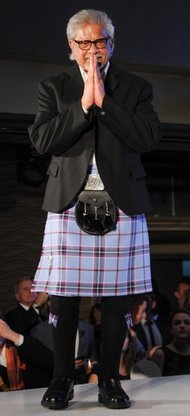Source of original post by Arun Gandhi: Gandhi Legacy Tour
Searching for Meaning in South Africa
The first Satyagraha Tour of South Africa was, perhaps, wrongly billed. It was not so much a “pursuit of Truth” as it was a search for meaning and purpose in life. For instance, how was it that from this boiling cauldron of hate and prejudice two historic icons – Mohandas K. Gandhi and Nelson “Madiba” Mandela – emerged to show the world the path of nonviolence and forgiveness, while many millions silently suffer the ignominy. Ultimately, of course, what one gets out of a trip depends on ones reason for making the journey. A tourist will just see the sights while a searcher with an open mind and eyes will learn and grow.
The trip reminded me of the prophetic words uttered by Gandhi weeks before his assassination in response to a journalist who asked: What will happen to your legacy after your death? Gandhi replied: “They (the people of India) will follow me in life, worship me in death but not make my cause their cause.” The universality of this poignant statement cannot be ignored. Any one of the hundreds of prophets who are worshiped today could have uttered these words.
There is no escaping the fact that both Gandhi and Mandela were regular people like you and me but at a crucial point in life they decided there has to be a different way to counter hate, prejudice, and violence. Some may say it was far too ambitious to claim that in one short visit we could find the answers to this important question. Yet it is also true that Truth can reveal itself in a flash of a moment, if one’s mind is open and receptive.
One reality that emerged for me during this trip was that it is a rare individual who, when faced with adversity, has the courage to make a bold decision even if the consequences of that decision can be life threatening.
If I am to pick the highlight of the tour it would be the visit to Spioenkop, the battlefield where the Boers (Afrikaner of Dutch descent) and the British fought the famous Boer War that lasted a little over three years. Greg Garson, our intrepid tour guide was also a remarkable historian. He brought the battle to life while standing on the crest of a mountain and looking over the field that undulated like a tumultuous sea. I could feel the bullets whizzing by and the canons booming. Although I had read about the yeoman service rendered by the Indian volunteers led by Grandfather I had no idea how difficult their task was.
Walking up to the crest of the mountain where the memorial to the war dead is erected was literally exhausting. To think that a four-man crew of stretcher-bearers carried hundreds of injured up and down these mountains for almost 20 miles each trip to the nearest field hospital was mind-blowing. They had to dodge bullets and cannon fire.

 The senseless shooting at the
The senseless shooting at the 




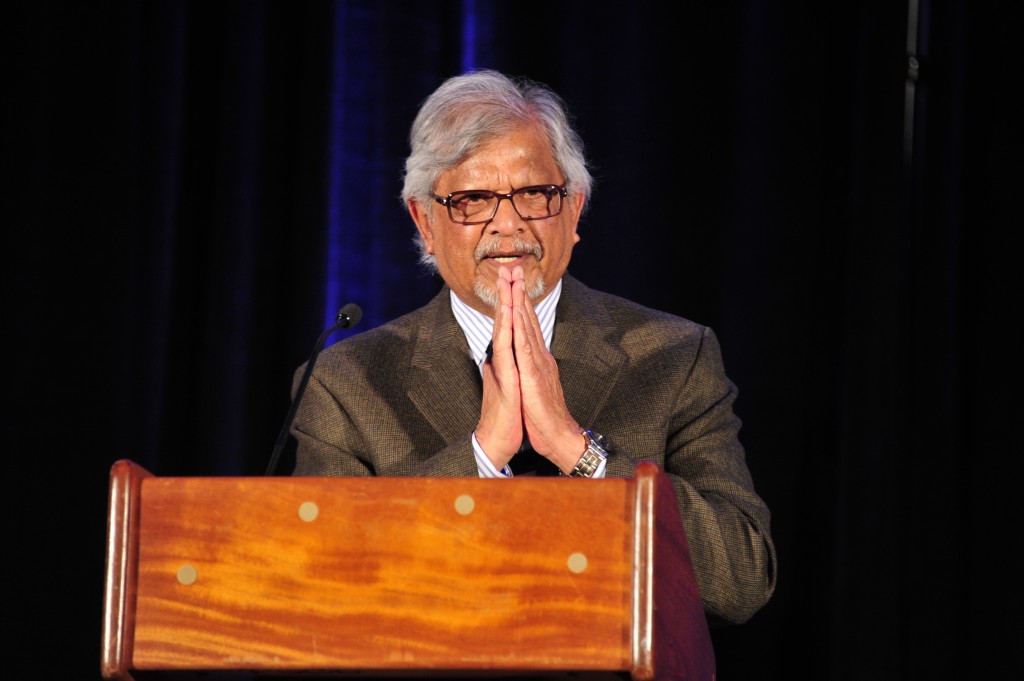




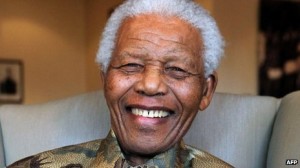
 First Meeting of a Parliament of World Religions
First Meeting of a Parliament of World Religions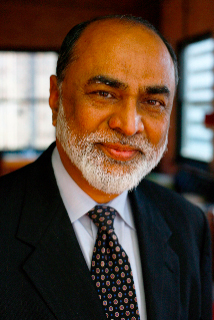
 “Sectarianism, bigotry, and its horrible descendant, fanaticism, have long possessed this beautiful earth. They have filled the earth with violence, drenched it often with human blood, destroyed civilization, and sent whole nations to despair. Had it not been for these horrible demons, human society would be far more advanced than it is now. But their time is come; and I fervently hope that the bell that tolled this morning in honor of this convention may be the death-knell of all fanaticism, of all persecutions with the sword or with the pen, and of all uncharitable feelings between persons wending their way to the same goal.”
“Sectarianism, bigotry, and its horrible descendant, fanaticism, have long possessed this beautiful earth. They have filled the earth with violence, drenched it often with human blood, destroyed civilization, and sent whole nations to despair. Had it not been for these horrible demons, human society would be far more advanced than it is now. But their time is come; and I fervently hope that the bell that tolled this morning in honor of this convention may be the death-knell of all fanaticism, of all persecutions with the sword or with the pen, and of all uncharitable feelings between persons wending their way to the same goal.”


 But his spirit – Great Spirit = Mahatma – is lived by his grandson, Arun, whose words are now flowing towards me. However, this is not the first time that I have met Arun. I first got in contact with Arun and his wife Sunanda in 1978 when we sought to adopt our daughter. Sunanda and Arun had contacts with small orphanages in rural India areas thirty to forty miles from Bombay.
But his spirit – Great Spirit = Mahatma – is lived by his grandson, Arun, whose words are now flowing towards me. However, this is not the first time that I have met Arun. I first got in contact with Arun and his wife Sunanda in 1978 when we sought to adopt our daughter. Sunanda and Arun had contacts with small orphanages in rural India areas thirty to forty miles from Bombay.






 As he went to town, my mother gave me a grocery list of things I needed and my father asked me to take care of some outstanding things like taking the car serviced. When I left my father, he told me: See you here at 5 pm and we will go home together.
As he went to town, my mother gave me a grocery list of things I needed and my father asked me to take care of some outstanding things like taking the car serviced. When I left my father, he told me: See you here at 5 pm and we will go home together.










 There is a need for a change in our collective mindset, to one foreshadowed by Gandhi, one hundred years ago when he penned his famous book,
There is a need for a change in our collective mindset, to one foreshadowed by Gandhi, one hundred years ago when he penned his famous book, 

 In 1893, M.K. “Mahatma” Gandhi came to South Africa as a young lawyer seeking to start his law career. However, after he experienced first hand a traumatic incident of racial discrimination in Pietermaritzburg S.A., he dedicated himself to the pursuit of social justice and equal rights. During the 21 years he lived in South Africa, he developed and implemented his seminal strategy of Satyagraha, which is chronicled in his book “Satyagraha in South Africa.” While in South Africa, he also founded Phoenix Settlement, a communal ashram that served as the location for much of his sociopolitical and spiritual work.*
In 1893, M.K. “Mahatma” Gandhi came to South Africa as a young lawyer seeking to start his law career. However, after he experienced first hand a traumatic incident of racial discrimination in Pietermaritzburg S.A., he dedicated himself to the pursuit of social justice and equal rights. During the 21 years he lived in South Africa, he developed and implemented his seminal strategy of Satyagraha, which is chronicled in his book “Satyagraha in South Africa.” While in South Africa, he also founded Phoenix Settlement, a communal ashram that served as the location for much of his sociopolitical and spiritual work.*



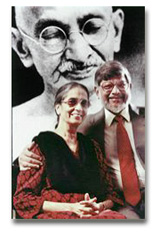 Prior, Sunanda and Arun, along with friends, organized India’s Center for Social Unity which developed self-help, economic models for India’s rural poor, assisting in breaking the cycle of poverty and keeping children at home and in school.
Prior, Sunanda and Arun, along with friends, organized India’s Center for Social Unity which developed self-help, economic models for India’s rural poor, assisting in breaking the cycle of poverty and keeping children at home and in school.


 My sister Ela Gandhi, granddaughter of Mahatma Gandhi, was born in 1940 in the Phoenix Settlement in the Inanda district of KwaZulu Natal, South Africa. An anti-apartheid activist from an early age, Ela was banned from political activism in 1973 and placed under house arrest for a total of nine years. After her imposed sanction, Ela became a member of the
My sister Ela Gandhi, granddaughter of Mahatma Gandhi, was born in 1940 in the Phoenix Settlement in the Inanda district of KwaZulu Natal, South Africa. An anti-apartheid activist from an early age, Ela was banned from political activism in 1973 and placed under house arrest for a total of nine years. After her imposed sanction, Ela became a member of the 
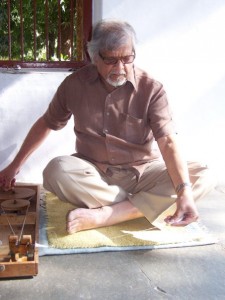


 Ed note: The following is a transcript of an interview by ISKRA staff with Arun Gandhi that took place on March 19, 2013. Arun is the grandson of Mohandas (Mahatma)Gandhi and heads the Gandhi Institute for Nonviolence located in Rochester, NY. He has previously made appearances in Brilliant as well as Grand Forks and will be speaking at the Brilliant Cultural Centre on May 17, 2013. We feel fortunate to have the opportunity to interview Arun and ask him several questions provided by our ISKRA staff as well as members of the broader Doukhobor community. It was truly a pleasure to converse with this soft spoken advocate of peace and nonviolence. We were impressed with the simplicity and wisdom contained in the philosophical views that he shared with us. We encourage our readers to reflect on his comments.
Ed note: The following is a transcript of an interview by ISKRA staff with Arun Gandhi that took place on March 19, 2013. Arun is the grandson of Mohandas (Mahatma)Gandhi and heads the Gandhi Institute for Nonviolence located in Rochester, NY. He has previously made appearances in Brilliant as well as Grand Forks and will be speaking at the Brilliant Cultural Centre on May 17, 2013. We feel fortunate to have the opportunity to interview Arun and ask him several questions provided by our ISKRA staff as well as members of the broader Doukhobor community. It was truly a pleasure to converse with this soft spoken advocate of peace and nonviolence. We were impressed with the simplicity and wisdom contained in the philosophical views that he shared with us. We encourage our readers to reflect on his comments.
